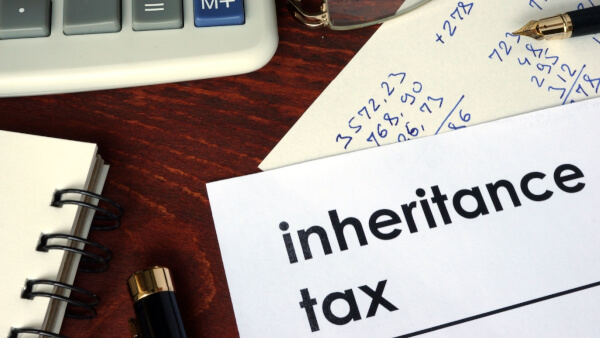SIPP for non-UK residents: Complete guide
Read our helpful guide to SIPPs for non-UK residents, covering everything you need to know about Self-Invested Personal Pensions for UK expats.

If you live in the UK but own property, run a business or have other recurring expenses in France, you’ll need to send payments across the Channel. Paying utility bills, taxes, subscription services or something else requires navigating international payment systems.
In this guide, we’ll teach you how to pay a bill in France from the UK. We’ll cover the safest and most convenient options, whether you’re dealing with occasional or regular payments.
We’ll also highlight Wise, a safe and convenient payment solution. Whether you prefer manual transfers or automatic Direct Debits, a Wise account offers transparent fees* and supports 40+ currencies, making it easier to manage your bills from anywhere.
➡️ Learn more about the Wise account
If you’re based in the UK but responsible for bills tied to property or services in France, it’s important to know which payments you’ll need to stay on top of. Here are the most common ones:
Factoring these into your budget can help you stay on top of costs and avoid surprises
One of the most traditional methods for paying a bill in France from the UK is by making an international bank transfer, typically processed through the SWIFT network. To complete such a transfer, you’ll need the recipient’s IBAN and BIC. These unique identifiers ensure that your payment is directed to the correct French bank and account.
However, international transfers can have some downsides. Banks usually charge fees that vary depending on the bank and the amount you are sending. They also tend to offer less favourable exchange rates when converting pounds to euros, so the person receiving the money might get less than you expected.
To avoid mistakes, it is important to double-check the IBAN and BIC carefully before sending the payment and to consider notifying the recipient once the transfer has been made. Although this method is straightforward, it can be slow and expensive, so it’s generally more suitable for occasional or larger payments than frequent bills.
Opening a French bank account can make paying bills in France much easier for UK residents with ongoing expenses or property there. With a local account, you can make bank transfers (virements) directly within the French banking system, avoiding international transfer fees and unfavourable exchange rates.
Some French banks will even allow you to open an account remotely, especially if you can provide proof of a French address or property ownership. Once your account is set up, you can pay utility bills, taxes, rent and other expenses directly from the account in euros.
Having a French bank account reduces the complexity and cost of paying bills compared to relying on cross-border transfers from the UK. A Wise account could be a useful alternative to a bank account if you would prefer a multi-currency account.
To make a transfer, you’ll need the recipient’s account details, including their account number and branch name. These details can be found on the bill, which will either be an RIB (rélevé d’identité bancaire) or RIP (rélevé d’identité postal).1
Paying bills in France through direct debit is a reliable and efficient method, especially for regular expenses like utilities, taxes and subscriptions. Some service providers might even request payments by direct debit, which is mentioned in the subscription contract.2
To activate a direct debit, you’ll need to provide a signed authorisation or *autorisation de prélèvement *to the service provider. Once you authorise a direct debit or prélèvement automatique, the amount due is automatically withdrawn from your French bank account on the payment date. This ensures bills are paid on time without any action needed on your part.2
When it comes to rental agreements, landlords cannot make direct debit payments mandatory as that kind of clause is not allowed under French law. Even if your contract says otherwise, it’s not legally valid and you can choose how you want to pay instead.2
Many French utility companies, tax offices and service providers now offer online portals where you can pay bills directly. For certain taxes and administrative fees, you can also use the French government’s online payment platforms.
For example, the official French tax website impots.gouv.fr lets you pay a variety of taxes online through their website or app, including housing tax, property tax and commercial wasteland tax. They use a flexible direct debit system, meaning it withdraws money from your account at least ten days after the deadline.3
To use this platform, you can pay using either your French or your UK bank account. You will need your tax number and bank details to complete the payment. It is important to keep payment confirmation receipts and check your bank statements regularly to ensure all transactions have been processed successfully.3
When figuring out how to pay a bill in France from the UK, online payment platforms offer a straightforward solution. Companies like Revolut, PayPal and Monzo provide easy and secure money transfers. You can also pay bills with Wise, either through direct debits or manual transfers.
These platforms enable you to send euros from home, often with lower fees than some traditional banks. This can be a convenient method for anyone who needs to manage bills while living outside France, but always double-check the payment details before confirming any transfer.
There are various options for how to pay a bill in France from the UK, allowing you to choose the best one for your needs. One helpful method is Wise, which offers secure, reliable international transfers and low fees*.
A Wise account can be a convenient way to pay your bills and subscriptions, whether manually or through Direct Debits. You can also use Wise to send and receive domestic and international payments securely and with no surprise costs.
Wise allows you to hold up to 40+ currencies and switch between them easily in the Wise app.
Whenever you convert money with Wise, you get the mid-market exchange rate, with no mark-ups or hidden margins. All fees are transparent*, so you always know exactly what you’re sending and receiving.
➡️ Learn more about the Wise account
Sources used in this article:
1. Armishaws - banking in France
2. European Consumer Centre France - means of payment in France
3. Impots.gouv.fr - online payment
Sources last checked on date: 26-Sep-2025
*Please see terms of use and product availability for your region or visit Wise fees and pricing for the most up to date pricing and fee information.
This publication is provided for general information purposes and does not constitute legal, tax or other professional advice from Wise Payments Limited or its subsidiaries and its affiliates, and it is not intended as a substitute for obtaining advice from a financial advisor or any other professional.
We make no representations, warranties or guarantees, whether expressed or implied, that the content in the publication is accurate, complete or up to date.

Read our helpful guide to SIPPs for non-UK residents, covering everything you need to know about Self-Invested Personal Pensions for UK expats.

Learn how to cancel your DAZN subscription with our step-by-step guide and discover how Wise can help you save on cross currency subscriptions.

Tired of Disney Plus? Cancel your subscription in minutes with this step-by-step guide and learn how Wise can help with future payments.

Looking to streamline your subscriptions and quit Spotify and cancel your subscription? Follow our guide to avoid unwanted charges on your account.

Read our helpful guide on inheritance tax for UK non-residents, including how IHT works, current tax rates and whether non-residents have to pay it.

How much money can you receive as a gift from overseas in the UK? Read our guide and find out the latest rules.